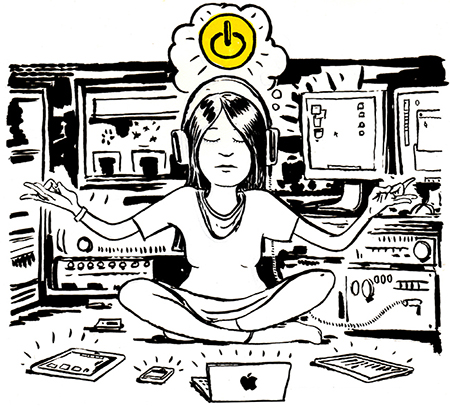ZEITGUIDE TO SLEEP

ZEITGUIDE ‘HEALTH AND WELLNESS’ IMAGE BY KRIS PORTER
Do you get enough sleep? And the right kind of sleep?
That topic was buzzing in recent weeks on Quora, where the question, “How do CEOs who sleep for only 4-5 hours daily manage to function and run multimillion dollar companies?” drew hundreds of opinions.
Answers ranged from “I really, really, really love what I do” to avoiding carbs to the recent studies that suggest genetic mutations of “short sleepers,” who represent less than 1% of the population.
But according to Alice Park’s recent article in Time magazine, “The Power of Sleep,” new scientific research proves that people must get at least seven hours of sleep per night. It wasn’t the usual story about sleep’s role in improving concentration, alertness, memory, and happiness.
Rather, it provided the latest research on how sleep reduces toxic waste from our brains.
During sleep, our glial cells slow electric activity down, and the size of our brain cells literally shrink. This allows more spinal fluid to slosh around and clean out biological debris. “It’s like a dishwater that keeps flushing through to wash the dirt away,“ says Dr. Maiken Nedergaard, co-director of the Center for Translational Neuromedicine at the University of Rochester.
Because we multi-task, live attached to our smartphones, and hyper-schedule, our brains are on daily overdrive. And with that over-action and energy consumption, our brains produce more waste today than ever before.
When we don’t get enough sleep, the glial cells can’t clear away all that garbage. Scientist now think this could contribute to brain disorders.
__________
But do we have to get seven hours of sleep all in one shot?
Scientists and historians are discovering that bimodal sleep might be our natural behavior. Roger Ekirch, a professor of History at Virginia Tech, found historical and literary evidence that two shorter periods of sleep was common in the pre-industrial era. In between was a 1-to-2-hour period when people would visit with neighbors, chat with bedfellows, or have sex. We switched to a single sleeping period only when streetlights, indoor lamps, and coffeehouses made nighttime the prime time for socializing. Current sleep studies see these same patterns reappear when artificial light is taken out of the equation.
Rather than panic when you wake at 3 a.m., think of it as an anthropological throwback.
__________
But if you have trouble falling back to sleep or continue to get less than 7 hours of sleep on a continual basis, try to change your patterns.
As Brown University’s Mary Carskadon told Time, we should think about sleep depravation the same way we do smog, secondhand smoke, or chemicals in our drinking water. Insufficient sleep pollutes our minds.
__________
How to get a better night of sleep?
ZEITGUIDE friend, Ari Miesel, Founder of LessDoing.com, gives us 5 tips:
1. Wear Blue-light blocking sunglasses an hour before bed to remove the melatonin reducing effects of TVs, laptops, and iPhones
2. Cool your bedroom; 68 degrees is optimal sleeping temperature
3. Take a bath before bed with Magnesium flakes
4. Use the Stress doctor iPhone app before bed to help you breath deeply and reset your heart rate variability
5. Use Beddit sleep tracker kit to quantify and identify aspects of your sleep that are sub-optimal
Keep Learning and Sleep Well…
Brad Grossman
